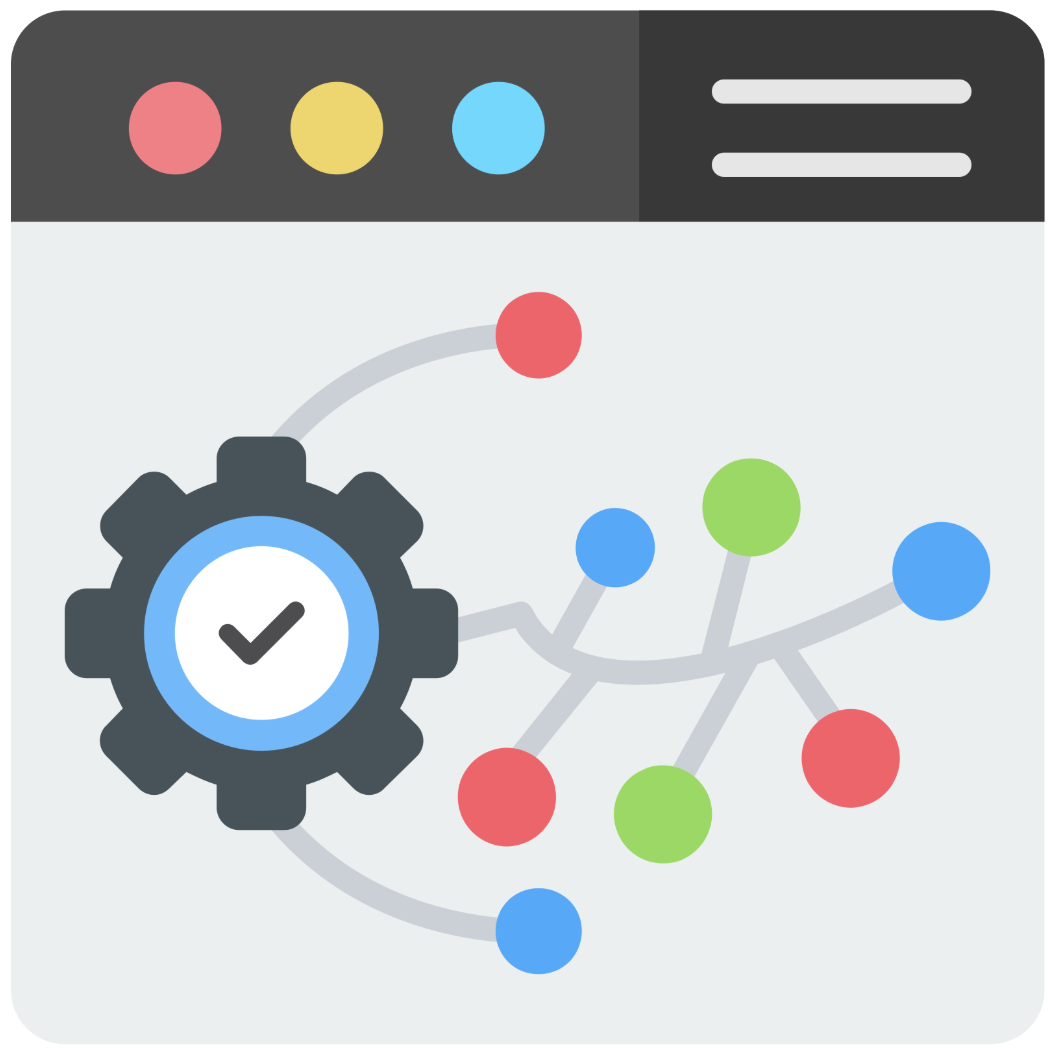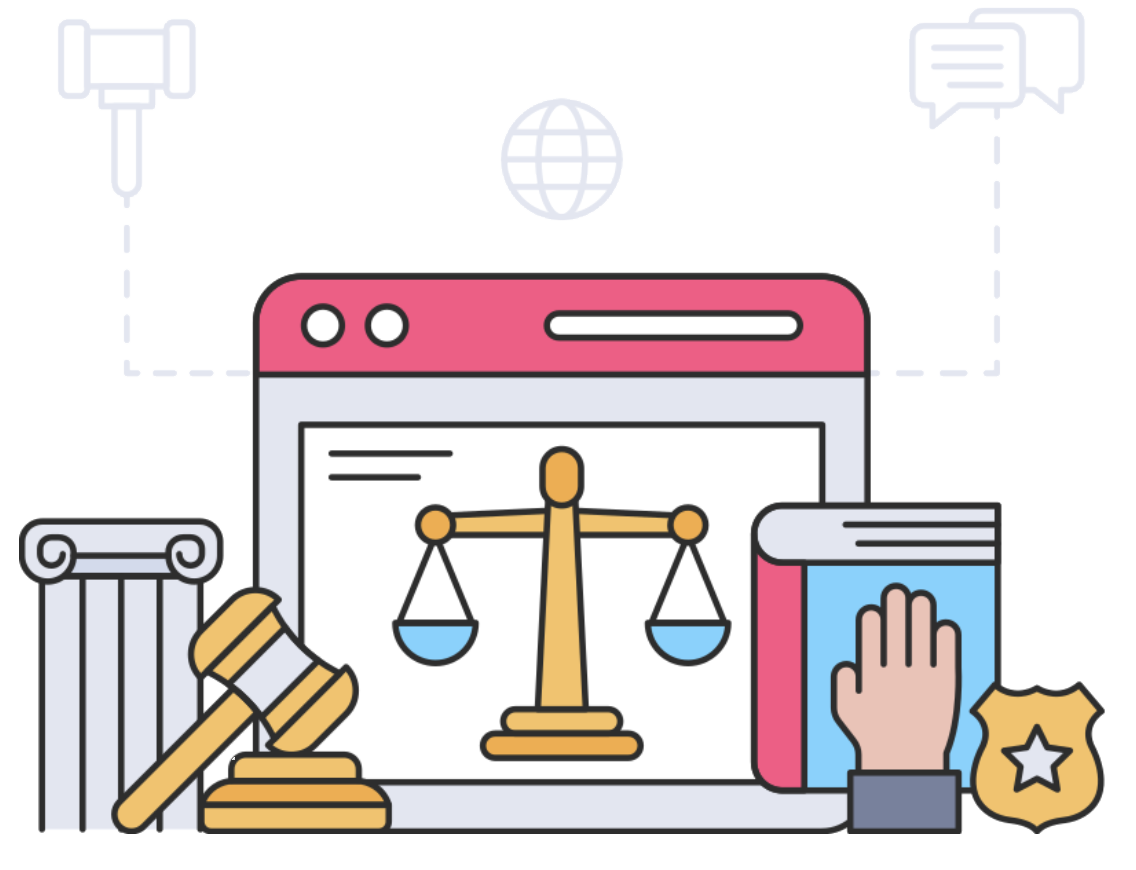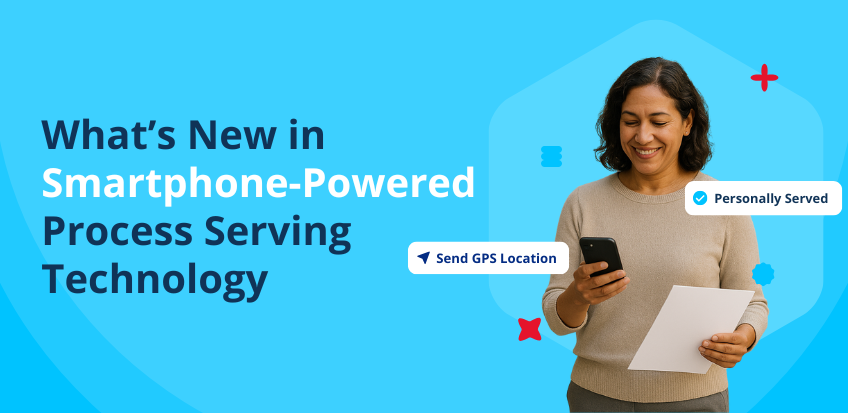Having a souped-up smartphone isn’t the flex it used to be.
Everyone in the process serving world has one. The real difference now is how you use it. Are you syncing service information in real time? Capturing court-ready evidence? Ready for the shift toward digital service via email, text, and social media?
The rules are changing, and process server technology is evolving with them. In the litigation support service business, getting ahead of both isn’t just smart—it’s essential. Here’s how to do it.

Mission Control in Your Pocket (or Purse)
Process server technology isn’t just on your smartphone anymore — it is your smartphone.
And when paired with a platform like LegalConnect, these smartphone tools don’t operate in isolation—they become part of a centralized, compliance-driven system that allows your entire team, including subcontractors, to work in sync. LegalConnect helps process servers manage job assignments, update statuses, and upload proofs of service in real time, reducing time in the field while increasing client satisfaction.
Meanwhile, GPS on your smartphone has evolved from simple turn-by-turn navigation into an accountability power tool.
For example, a phone that embeds GPS coordinates directly into images of serve locations offers process serving professionals a vitally important asset if service is challenged in court. The data-embedded image provides verifiable proof that you were exactly where you said you were, and exactly when you said you were there.
Audit-grade evidence, compliments of your phone.

Meet the Business End of Your Smartphone
It’s easy to love our smartphones—from the dopamine hit you get when someone “likes” your Facebook post to bragging rights for having the newest device to roll off the assembly line.
If you serve court documents for a living, though, what you may prize most of all is the global connectivity and purpose-built apps your phone has that can and should fundamentally change how your business operates.
Change how?
For starters, it can help you branch out and provide other litigation support services. For example, if you want to offer eFiling and service of process from the same device, you can.
Another way it changes how your business operates is by unifying forces. In other words, if you want your entire team working on one app with the same compliance standards—you can. That advantage is built-in when you pair your smartphone with LegalConnect software.
Why smartphone + software synergy matters for your business in 2025:
- You spend less time in the office. Job details hit your phone instantly, and status updates flow back to your clients just as quickly.
- You answer fewer status calls. Real-time notifications your clients see let them know about job progress before they must ask.
- You complete more serves per day. Less paperwork and fewer check-ins mean you can spend more time in the field. Presto! Instant revenue expansion.
And, as compliance expectations climb, your smartphone can back you up.
Case in point: Today, courts demand documentation and clients demand transparency. The timestamps, geo-tags, visual evidence, and instant updates your smartphone creates aren’t just spiffy bells and whistles—they’re part of the service your brand delivers that less savvy providers can’t.
But all this only works if your process server technology is set up for it.
Is your mindset beginning to shift? Do you want to explore more ways to grow? Bookmark How to Attract Customers to Your Process Serving Business for your next read.

Where Smartphones and the Courts Converge
Process servers understand the importance of trust. But before trust comes reputation. Bankable reputations are built on performance over time—and a history of proving the job was done right.
When it comes to proving the job was done right, a smartphone is infinitely better than an eyewitness because it provides proof that is objective, measurable, and always available for a court appearance.
And, if you find yourself before a judge defending one of the alternative types of service gradually being accepted, your smartphone covers you in two important ways:
- Captures screenshots of service attempts on social pages.
- Provides timestamped proof of delivery via email or text.
Is all this digital data really that important? The answer is “Yes”.
That’s because courts are gradually warming to the idea of service by email, social media, and text message—if you can back it up.
Here’s where the courts are trending in 2025:
- Texas permits email and social with a judge’s order.
- Illinois, Indiana, and Maryland are all moving toward more conditional eService.
As a process server navigating the evolving court standards, your smartphone isn’t just a tool for taking photos. It’s a critical part of your compliance program that plays an outsized role in providing peace of mind to your clients.
For more on building your reputation as a go-to provider, add How Process Servers Become Trusted Law Firm Partners to your reading list.

The Smartphone Isn’t New — But Your Strategy Should Be
Smartphones aren’t new technology, but the way you use them in your process serving business should be. A similar mindset paid off for banks when they realized hiring more staff to work longer hours was no match for online banking.
So, if you really want to get the best return out of that smartphone, learn how to use it as part of a transformative process server technology platform that expands your business. LegalConnect can show you how to use it to branch out—and become a full-service litigation support service partner wherever there’s a cell signal.
Want to see how?
Contact a LegalConnect expert now and start building a strategy that positions your business for the future.
